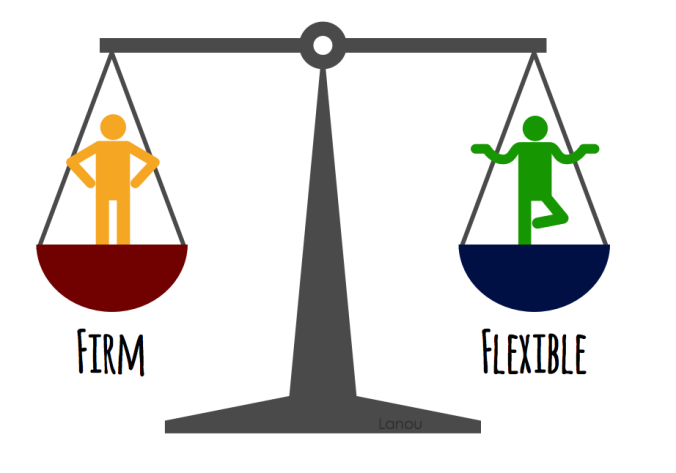
As previously discussed, good time-management skills are essential to creators, dreamers, and anyone pursuing a goal.
The best way to manage your time wisely is to live and work efficiently: to achieve maximum productivity with minimum wasted time, effort, energy, or expense. To be efficient is to get the most bang for your buck (or day). And to live and work efficiently, one must do so in a competent and organized manner.

Let’s discuss organization: an orderly, systematic approach to any given task, unhampered by needless clutter, confusion, and chaos.
All those devil-may-care individuals who enjoy flying by the seat of their pants, please say Ouch! Uh, we weren’t able to hear everyone’s response; next time, let’s be organized, and take turns speaking.
 Organization is one of the greatest tools for good time management. We should all know this — instinctively — because the writing has been on the wall — er, cosmos — since the beginning of time. After all, when God created the universe, He did so in an efficient, orderly, and systematic manner:
Organization is one of the greatest tools for good time management. We should all know this — instinctively — because the writing has been on the wall — er, cosmos — since the beginning of time. After all, when God created the universe, He did so in an efficient, orderly, and systematic manner:
When God began creating the heavens and the earth, the earth was a shapeless, chaotic mass…. Then God said, “Let there be light.” And light appeared. And God was pleased with it and divided the light from the darkness. He called the light “daytime,” and the darkness “nighttime.” Together they formed the first day. And God said, “Let the vapors separate to form the sky above and the oceans below.” …This all happened on the second day. Then God said, “Let the water beneath the sky be gathered into oceans so that the dry land will emerge.” …Then God named the dry land “earth,” and the water “seas.” (Genesis 1:1-10 TLB)

From the beginning, the Master Creator demonstrated that He’s systematic in His dealings: for instance, He assigned different tasks to different days; He also prioritized His work, taking care of first things first — imagine the chaos that would have ensued had God created land mammals before He separated the seas from the dry land!
Note also, God works in an orderly fashion. On the fourth day of Creation He took steps “to identify the day and the night” by organizing the functions of the Sun and moon. He did this in order to “mark the days and years” and “bring about the seasons.” Yes, God essentially devised a schedule for all lifeforms — which He faithfully keeps. And before the fourth day was over, He had arranged the stars in the night sky. (Genesis 1:14-19 TLB)

You know the rest. On the fifth day of Creation God filled the earth with plants, birds, fish, and animals. (Genesis 1:20-25) On the following day, after laying all the groundwork (pun intended), God fulfilled His great dream through His ultimate creation: humankind. (Genesis 1:26)
But is God an efficient creator? Of course, because He “…Looked over all that He had made, and it was excellent in every way. This ended the sixth day.” (Genesis 1:31 TLB) That’s quite an accomplishment for six short days. God was organized and put His time to optimum use. He literally got the most bang for His proverbial buck.
 Efficiency, organization, and proper time-management go hand in hand. But regarding good organization skill, here’s a vital truth for all dreamers and creators: God actually expects you to be organized, because HE is organized.
Efficiency, organization, and proper time-management go hand in hand. But regarding good organization skill, here’s a vital truth for all dreamers and creators: God actually expects you to be organized, because HE is organized.
“God is not one who likes things to be disorderly and upset.” (1 Corinthians 14:33 TLB) In fact, our Heavenly Father is described in several translations of this verse as “a God of order.” And since we are created in His image ( ) we have His spiritual DNA. So it’s only “natural” that we should follow His example in this. That’s why the Apostle Paul admonishes us to “be sure that everything is done properly in a good and orderly way.” (1 Corinthians 14:40 TLB)
Nothing wastes time like being disorganized: having to look for the car keys or find your phone every time you’re about to leave the house; wandering through the grocery aisles as you try to remember all the things you need buy — because you never made a list, or because you forgot where you put it; having to make several trips into town, because you forgot an item, or because you forgot about an errand you had to run — while you were out previously.

Being disorganized can cause you to lose time and be late — or to even miss an appointment or an opportunity. It can also cause you needless frustration, anxiety, and stress. These emotions, and the situations which caused them, are counterproductive; they can steal your peace, joy, and creativity, and thereby sap you of your energy.
If you want to make the most of your limited and precious time, then you simply must be organized. There is no way around this truth. And you have to be organized in every area of your life; remember, the Apostle Paul stated that “everything must be done decently and in order.” (1 Corinthians 14:40 HCSB) Is your garage “decent”? How about the kitchen cabinets and the bedroom closets?
 Our environment, and in particular the home (and how we choose to live within its four walls), has a direct affect on our state of mind. It can affect our attitude and disposition, and even our outlook on life. Our state of mind will in turn affect our emotions, actions, and decisions. As we previously discussed, attitude is everything — especially a can-do attitude. But a messy house, a disorganized office, and a life generally besieged by “clutter” can be aggravating, depressing, overwhelming, and even mind-numbing. Such things can also KILL our creativity!
Our environment, and in particular the home (and how we choose to live within its four walls), has a direct affect on our state of mind. It can affect our attitude and disposition, and even our outlook on life. Our state of mind will in turn affect our emotions, actions, and decisions. As we previously discussed, attitude is everything — especially a can-do attitude. But a messy house, a disorganized office, and a life generally besieged by “clutter” can be aggravating, depressing, overwhelming, and even mind-numbing. Such things can also KILL our creativity!
Regarding creativity, is your “creative space” well organized?
 A creative space is any designated area in your home where you can escape, to think, dream, and pursue creative projects. It might be the desk in the den or library, a sewing nook in the upstairs spare room, or a workbench in the corner of the garage. But wherever you choose to study, work, and dream, it’s important to keep your creative space organized and free of clutter.
A creative space is any designated area in your home where you can escape, to think, dream, and pursue creative projects. It might be the desk in the den or library, a sewing nook in the upstairs spare room, or a workbench in the corner of the garage. But wherever you choose to study, work, and dream, it’s important to keep your creative space organized and free of clutter.
Believe it or not, clutter can impede the ability to think clearly. And from a practical standpoint, you can accomplish more in less time, if you’re not continually shuffling through drawers, files, stacks of paper — trying to unearth whatever it is you need in order to get something done. So, do you want to work efficiently? Want to make the most of your time? Want to accomplish your goals sooner than later? Cut the clutter and get organized.
Easy? Not always, because if you are disorganized, and if your house or creative space is messy, your messiness and disorganization are no doubt the products of bad habits. But hey, as Jack Canfield and Mark Victor Hansen state in Chicken Soup for the Soul: Living Your Dreams, about ninety percent of  all behavior is habitual. These authors advise us to identify any unproductive habits and then work to replace them with good, productive, and beneficial habits — such as getting your house (and life) in order.
all behavior is habitual. These authors advise us to identify any unproductive habits and then work to replace them with good, productive, and beneficial habits — such as getting your house (and life) in order.
Worthwhile? Always! But remember, it takes 21 days to develop and form a habit; that’s three weeks of sticking with it. Give yourself time and don’t give up.
“I have the freedom to do anything, but not everything is helpful. I have the freedom to do anything, but I won’t be controlled by anything.” (1 Corinthians 6:12 CEB)
Next: How to “Cut the Clutter.”

 We dreamers and creators are always working toward a goal or dealing with a problem; waiting and hoping for answers and breakthroughs. Along the journey to realizing our hopes and aspirations we’ll encounter opposition and setbacks, and we’ll need to be able to endure delays and disappointments. Sadly, when “life happens,” it’s tempting to give up on our dreams and creative pursuits. If we want
We dreamers and creators are always working toward a goal or dealing with a problem; waiting and hoping for answers and breakthroughs. Along the journey to realizing our hopes and aspirations we’ll encounter opposition and setbacks, and we’ll need to be able to endure delays and disappointments. Sadly, when “life happens,” it’s tempting to give up on our dreams and creative pursuits. If we want  to stay the course and fulfill our destinies, we’ll need the backing, encouragement, comfort, strength, and reassurance that comes from One greater than ourselves. To get this Divine support, we’ll need some basic training … to follow several important spiritual steps.
to stay the course and fulfill our destinies, we’ll need the backing, encouragement, comfort, strength, and reassurance that comes from One greater than ourselves. To get this Divine support, we’ll need some basic training … to follow several important spiritual steps. As we previously discussed, good Time Management skills are absolutely essential for creators and dreamers. But using our time wisely is also a Biblical mandate. After all, time is the single most precious resource we have: when it’s gone, it’s long gone; and we can’t beg, borrow, or steal more of it. Hence, God expects us to make the most of it. Here’s how:
As we previously discussed, good Time Management skills are absolutely essential for creators and dreamers. But using our time wisely is also a Biblical mandate. After all, time is the single most precious resource we have: when it’s gone, it’s long gone; and we can’t beg, borrow, or steal more of it. Hence, God expects us to make the most of it. Here’s how:
 Here’s that Law of Reciprocity, again! (Previously mentioned in relation to Strength Training.) What we share with others eventually comes back to us — some way, some how, in some desirable form. It’s one of life’s great mysteries, but it works. And it applies not just to money, but also to love, acceptance, forgiveness … and time. There are many scriptures that reiterate this law, and unknowingly, even non-believers have embraced it, associating it with the idea of good karma and the phrase “what goes around comes around.”
Here’s that Law of Reciprocity, again! (Previously mentioned in relation to Strength Training.) What we share with others eventually comes back to us — some way, some how, in some desirable form. It’s one of life’s great mysteries, but it works. And it applies not just to money, but also to love, acceptance, forgiveness … and time. There are many scriptures that reiterate this law, and unknowingly, even non-believers have embraced it, associating it with the idea of good karma and the phrase “what goes around comes around.” Let’s stop viewing people as interruptions to our schemes and dreams. Instead, let’s view them through God’s loving eyes, as precious individuals struggling with problems or dealing with some difficult situation — as we all do; people who can use an encouraging word and a sympathetic ear.* So share your life. Share your resources: your money, your talents, your time! Ultimately you’ll benefit the most: being flexible (and therefore, relaxed) will enable you to keep your peace and joy, which are essential ingredients to maintaining the positive, faith-filled attitude that facilitates creativity and the pursuit of dreams.
Let’s stop viewing people as interruptions to our schemes and dreams. Instead, let’s view them through God’s loving eyes, as precious individuals struggling with problems or dealing with some difficult situation — as we all do; people who can use an encouraging word and a sympathetic ear.* So share your life. Share your resources: your money, your talents, your time! Ultimately you’ll benefit the most: being flexible (and therefore, relaxed) will enable you to keep your peace and joy, which are essential ingredients to maintaining the positive, faith-filled attitude that facilitates creativity and the pursuit of dreams. Since relationships and human interaction are perhaps the most important aspects of life, we need to make time for them.
Since relationships and human interaction are perhaps the most important aspects of life, we need to make time for them.  Now, declare with us, “…I trust in You, Lord; I say, ‘You are my God.’ My times are in Your hands….” (Psalm 31:14-15 NIV)
Now, declare with us, “…I trust in You, Lord; I say, ‘You are my God.’ My times are in Your hands….” (Psalm 31:14-15 NIV)